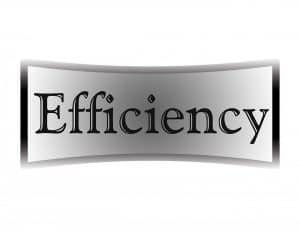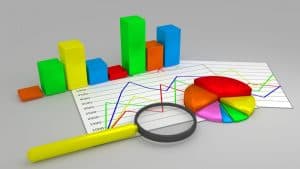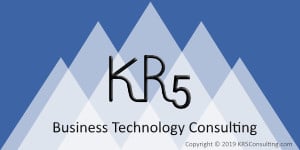How can information technology help a business? In this two-part series I wanted to answer that question using real examples and reveal some of the mystery. With digital disruption, AI and chat-bots ringing in our ears, business owners, juggling the cash, might wonder if that’s a direction they should take. Is that something that’s going to make a big difference, or is it a complete waste of time?
Even if it makes sense, owners can feel daunted at the thought of using tech in business. They might feel its stepping into the unknown, and fear losing control. Owners may worry about the impact to customers and staff, particularly if something should go wrong. They might be concerned that developers will follow their own ideas and ignore business needs.

The good news is that tech can create business value. It’s not all about new and shiny. Just as we might find an earlier engine design used in the launch of a new car, we find tech updated, refreshed and reused. There are shifts of course, for example more systems run in the cloud, yet they often reuse the same designs because they work. This means that owners can use different tech that suits their risk profile.
Sometimes it’s hard to get your arms around the benefits of tech such as productivity and efficiency. Therefore, in this series I look at six topics using real-world examples. In part-one I look at decision making, transaction systems and reporting. Part-two, “Business Benefits of Information Technology” covers team work, the internet of things and real-time data.
Many struggle with getting the best of out of technology. Our guide, Business Technology: Essential Guide to Best Use, will help you create a robust process to ensure your new tech achieves your aims.
Decision Making

If I said you could increase your sales by twenty three percent and save thirty percent of your marketing budget, you’d probably say too good to be true. Yet this is the story of a small business in Australia called Narellan. Narellan build swimming pools. Business was difficult because higher house prices meant that owners had more debt and less money to build a pool. Narellan wanted to reverse the downward trend and used a digitally led approach. They noticed a pattern of sales related to the weather but initially couldn’t work out what was going on.
Narellan crunched the data to discover that people were more likely to buy a pool when there were two or more days of better weather. Oddly enough, it wasn’t about how hot it was, it was the change in temperature. Narellan used a targeted campaign and switched on ad-words when temperature increased above the thirty-day rolling average. This increased leads by eleven percent and sales by twenty three percent. They also saved thirty percent of their marketing budget!
Transactional Systems
Computers are good at managing transactions and storing data. Back in the eighties, relational databases dramatically changed the way we used computers in the workplace. This ‘old’ tech is a workhorse, from accounting packages to customer relationship management. Virtually every area of business uses this tech such as sales, marketing, product management, delivery, customer service, human resources etc. These systems record data, such as customer, and can relate that to other data, such as orders, so for example you can see a list of all orders made by a customer, or a list of contacts in an account.

Object Health are a healthcare consultancy. Like many small businesses, initially Object Health used Excel and Dropbox to manage contacts. As volumes grew, it became unworkable as they found they didn’t have a clear picture of their sales pipeline. They tried to manage this with marathon conference calls, yet this was wasting valuable selling time. After implementing a customer relationship management system, they had more visibility and cut down on phone calls, conference calls, spreadsheets and didn’t have to search for lost documents! The business is thriving with an improved sales process and consultants able to manage more contacts.
Reporting
How can you make decisions quickly? Half the battle is understanding the problem. You want clear and timely information so you can make quick decisions. Having the right information to hand when you need it. Reports provide an early warning and helps the business be more responsive.

There are many different examples of reports used in business. Financial reports tell you if your making money, what you’re making money on and if you’ve got enough money to keep operating. Sales reports can tell you what’s in your pipeline and if you’re on target. A marketing report could tell you if your campaign is working or not. Information technology captures the data so that you can quickly produce the information you need to make good business decisions.
Finally
We’ve seen the benefits for better and faster decisions. Information Technology also helps everything run smoothly. Although it does involve making some changes and thinking about the problem differently, tech is essential for growth. Getting the best out of tech involves people, process and technology.
Related Articles
If you’d like to explore the ideas in this article further or need help and advice, please contact Rogan at rhounsell@kr5consulting.com – to arrange an informal chat.
If you’ve found this blog interesting or useful, please ‘like’, ‘comment’ or ‘share’ so it can help others too.

